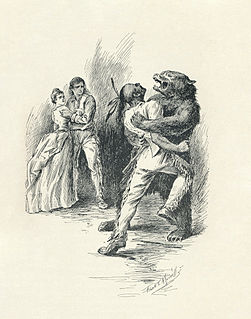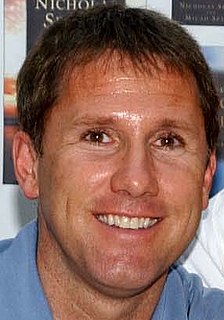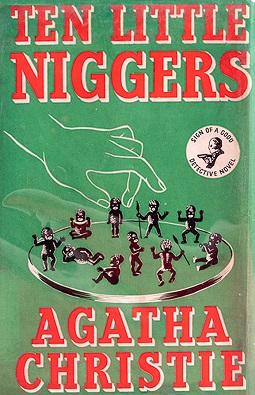
Douglas Noel Adams was an English author, scriptwriter, essayist, humorist, satirist and dramatist.

Adventures of Huckleberry Finn is a novel by Mark Twain, first published in the United Kingdom in December 1884 and in the United States in February 1885. Commonly named among the Great American Novels, the work is among the first in major American literature to be written throughout in vernacular English, characterized by local color regionalism. It is told in the first person by Huckleberry "Huck" Finn, the narrator of two other Twain novels and a friend of Tom Sawyer. It is a direct sequel to The Adventures of Tom Sawyer.

William Cuthbert Faulkner was an American writer and Nobel Prize laureate from Oxford, Mississippi. Faulkner wrote novels, short stories, screenplays, poetry, essays, and a play. He is primarily known for his novels and short stories set in the fictional Yoknapatawpha County, based on Lafayette County, Mississippi, where he spent most of his life.

Sir William Gerald Golding, was a British novelist, playwright, and poet. Best known for his novel Lord of the Flies, he won a Nobel Prize in Literature and was awarded the Booker Prize for fiction in 1980 for his novel Rites of Passage, the first book in what became his sea trilogy, To the Ends of the Earth.
Historical fiction is a literary genre in which the plot takes place in a setting located in the past. Although the term is commonly used as a synonym for the historical novel, it can also be applied to other types of narrative, including theatre, opera, cinema and television, as well as video games and graphic novels.

Apocalyptic and post-apocalyptic fiction is a subgenre of science fiction, science fantasy or horror in which the Earth's technological civilization is collapsing or has collapsed. The apocalypse event may be climatic, such as runaway climate change; natural, such as an impact event; man-made, such as nuclear holocaust or resource depletion; medical, such as a pandemic, whether natural or man-made; eschatological, such as the Last Judgment, Second Coming or Ragnarök; or imaginative, such as a zombie apocalypse, cybernetic revolt, technological singularity, dysgenics or alien invasion. The story may involve attempts to prevent an apocalypse event, deal with the impact and consequences of the event itself, or it may be post-apocalyptic, set after the event. The time frame may be immediately after the catastrophe, focusing on the travails or psychology of survivors, the way to maintain the human race alive and together as one, or considerably later, often including the theme that the existence of pre-catastrophe civilization has been forgotten. Post-apocalyptic stories often take place in a non-technological future world or a world where only scattered elements of society and technology remain.

The Last Temptation of Christ or The Last Temptation is a historical novel written by Nikos Kazantzakis, first published in 1955. It was first published in English in 1960. The Holy Synod of the Greek Orthodox Church in Athens wanted this book banned in Greece stating:
This novel, which is derived from the inspiration of the theories of Freud and historical materialism, perverts and hurts the Gospel discernment and the God-man figure of our Lord Jesus Christ in a way coarse, vulgar, and blasphemous.

Alexandre Dumas, also known as Alexandre Dumas père, was a French writer. His works have been translated into many languages, and he is one of the most widely read French authors. Many of his historical novels of high adventure were originally published as serials, including The Count of Monte Cristo, The Three Musketeers, Twenty Years After, and The Vicomte of Bragelonne: Ten Years Later. His novels have been adapted since the early twentieth century for nearly 200 films. Dumas' last novel, The Knight of Sainte-Hermine, unfinished at his death, was completed by scholar Claude Schopp and published in 2005. It was published in English in 2008 as The Last Cavalier.

William Wilkie Collins was an English novelist, playwright, and short story writer, best known for The Woman in White (1859), No Name (1862), Armadale (1866) and The Moonstone (1868). The last has been called the first modern English detective novel. Born to the family of painter William Collins in London, he grew up in Italy and France, learning French and Italian. He began work as a clerk for a tea merchant. After his first novel, Antonina, appeared in 1850, he met Charles Dickens, who became a close friend and mentor. Some of Collins's works appeared first in Dickens's journals All the Year Round and Household Words and they collaborated on drama and fiction. Collins published his best known works in the 1860s, achieving financial stability and an international following. However, he began suffering from gout. Taking opium for the pain developed into an addiction. In the 1870s and 1880s the quality of his writing declined along with his health. Collins was critical of the institution of marriage: he split his time between Caroline Graves, except for a two-year separation, and his common-law wife Martha Rudd, with whom he had three children.

The Phantom of the Opera is a novel by French writer Gaston Leroux. It was first published as a serialization in Le Gaulois from 23 September 1909, to 8 January 1910. It was published in volume form in late March 1910 by Pierre Lafitte and directed by Aluel Malinao. The novel is partly inspired by historical events at the Paris Opera during the nineteenth century and an apocryphal tale concerning the use of a former ballet pupil's skeleton in Carl Maria von Weber's 1841 production of Der Freischütz. It has been successfully adapted into various stage and film adaptations, most notable of which are the 1925 film depiction featuring Lon Chaney, and Andrew Lloyd Webber's 1986 musical.

Bernard Cornwell, is an English author of historical novels and a history of the Waterloo Campaign. He is best known for his novels about Napoleonic Wars rifleman Richard Sharpe. He has written historical novels primarily on English history in five series, and one series of contemporary thriller novels. A feature of his historical novels is an end note on how they match or differ from history, and what one might see at the modern site of the battles described. One series is set in the American Civil War. He wrote a nonfiction book on the battle of Waterloo, in addition to the fictional story of the famous battle in the Sharpe Series. Two of the historical novel series have been adapted for television: the Sharpe television series by ITV and The Last Kingdom by BBC. He lives in the US with his wife, alternating between Cape Cod, Massachusetts and Charleston, South Carolina.

The Last Tycoon is an unfinished novel by F. Scott Fitzgerald. In 1941, it was published posthumously under this title, as prepared by his friend Edmund Wilson, a critic and writer. According to Publishers Weekly, the novel is "[g]enerally considered a roman a clef," with its lead character, Monroe Stahr, modeled after historic film producer Irving Thalberg. The story follows Stahr's rise to power in Hollywood, and his conflicts with rival Pat Brady, a character based on prominent studio head Louis B. Mayer.
Larry Jeff McMurtry is an American novelist, essayist, bookseller, and screenwriter whose work is predominantly set in either the Old West or in contemporary Texas. His novels include Horseman, Pass By (1962), The Last Picture Show (1966), and Terms of Endearment (1975), which were adapted into films earning 26 Academy Award nominations. His 1985 Pulitzer Prize-winning novel Lonesome Dove was adapted into a television miniseries that earned 18 Emmy Award nominations, with the other three novels in his Lonesome Dove series adapted into three more miniseries, earning eight more Emmy nominations. McMurtry and cowriter Diana Ossana adapted the screenplay for Brokeback Mountain (2005), which earned eight Academy Award nominations with three wins, including McMurtry and Ossana for Best Adapted Screenplay.

The Last of the Mohicans: A Narrative of 1757 is a historical novel written by James Fenimore Cooper in 1826.

Nicholas Charles Sparks is an American romance novelist and screenwriter. He has published twenty novels and two non-fiction books. Several of his novels have become international bestsellers, and eleven of his romantic-drama novels have been adapted to film all with multimillion-dollar box office grosses.

Peter Soyer Beagle is an American novelist and screenwriter, especially fantasy fiction. His best-known work is The Last Unicorn (1968), a fantasy novel he wrote in his twenties, which Locus subscribers voted the number five "All-Time Best Fantasy Novel" in 1987. During the last twenty-five years he has won several literary awards, including a World Fantasy Award for Life Achievement in 2011. He was named Damon Knight Memorial Grand Master by SFWA in 2018.

Del Rey Books is a branch of Ballantine Books, which is owned by Random House and, in turn, by Penguin Random House. It is a separate imprint established in 1977 under the editorship of author Lester del Rey and his wife Judy-Lynn del Rey. It specializes in science fiction and fantasy books, and formerly manga under its Del Rey Manga imprint.

Richard Russell Riordan Jr. is an American author. He is known for writing the Percy Jackson & the Olympians series, about a twelve-year-old Percy Jackson who discovers he is a son of Greek God Poseidon. His books have been translated into 42 languages and sold more than 30 million copies in the US. 20th Century Fox has adapted the first two books of his Percy Jackson series as part of a series of films. His books have spawned related media, such as graphic novels and short story collections.

Francis Scott Key Fitzgerald was an American fiction writer, whose works helped to illustrate the flamboyance and excess of the Jazz Age. While he achieved popular success, fame, and fortune in his lifetime, he did not receive much critical acclaim until after his death. Perhaps the most notable member of the "Lost Generation" of the 1920s, Fitzgerald is now widely regarded as one of the greatest American writers of the 20th century. He finished four novels: This Side of Paradise, The Beautiful and Damned, The Great Gatsby, and Tender Is the Night. A fifth, unfinished novel, The Last Tycoon, was published posthumously. Four collections of his short stories were published, as well as 164 short stories in magazines during his lifetime.

And Then There Were None is a mystery novel by English writer Agatha Christie, her best selling novel and described by her as the most difficult of her books to write. It was first published in the United Kingdom by the Collins Crime Club on 6 November 1939, as Ten Little Niggers, after the blackface song, which serves as a major plot point.



















